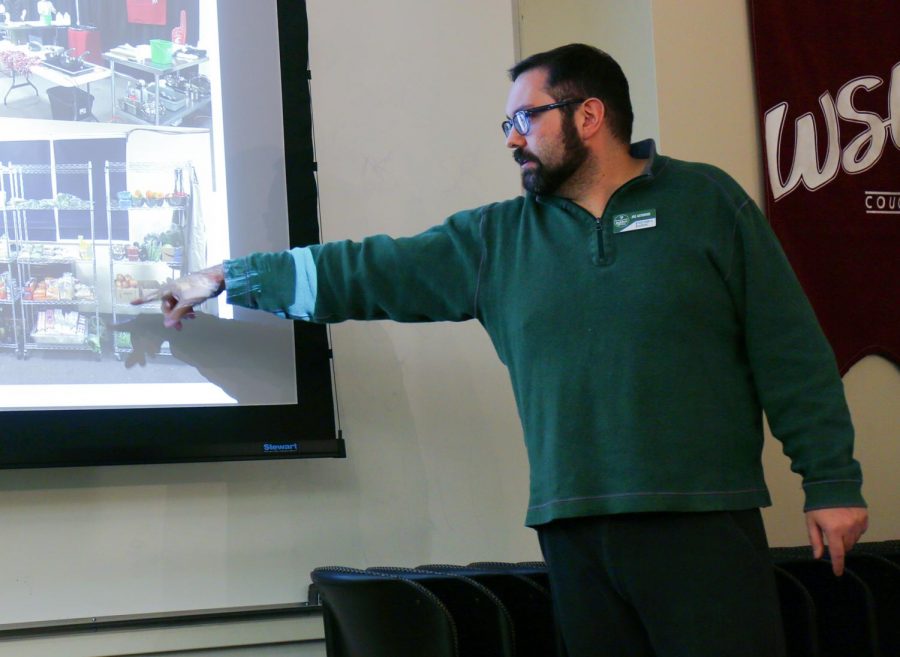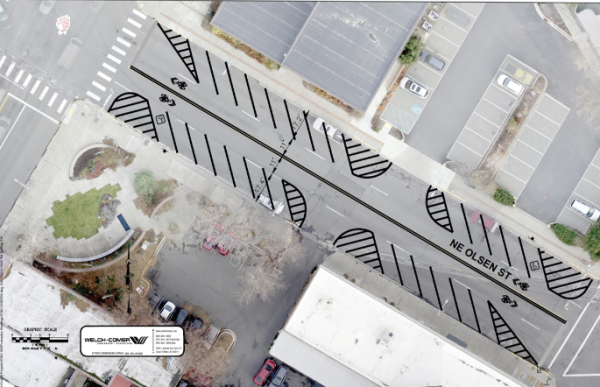Mobile farm stand to fight food insecurity rates
Moving market will sell fresh produce to small Palouse towns
ABIGAIL LINNENKOHL | DAILY EVERGREEN FILE
Joe Astorino, Community Action Center garden and nutrition specialist for community food, explains major diet and nutrition problems faced by low-income people on Nov. 14, 2017, in the Smith Center for Undergraduate Education.
September 4, 2019
The Community Action Center is trying to solve food insecurity by implementing a mobile farm stand to sell fresh fruits and vegetables to local areas in Washington and Idaho.
The project is titled “Palouse Tables Project: On the Move.” It seeks to serve as a miniature and mobile farmers’ market to small towns in the Palouse.
Whitman County has the highest rate of food insecurity in Washington at 18.3 percent, according to Feeding America’s 2019 Map the Meal, which uses statistics from 2017. Latah County ranks second in Idaho for highest food insecurity at 16.7 percent.
Joe Astorino, the CAC garden and nutrition specialist for community food, said the stand would be converted from a passenger bus and preferably sell local produce to help feed communities and support farmers.
“This is a popular model in other regions,” he said. “It’s been a long time coming.”
Right now, the CAC is waiting for a U.S. Department of Agriculture grant to fund the vehicle, Astorino said.
Ed and Beatriz Schweitzer, and Schweitzer Engineering Laboratories each donated $10,000 to the project, Astorino said. The project is still taking donations to reach matching funds from the USDA.
“They want to know that the national government isn’t the only support,” he said.
The Whitman County Food Coalition and Palouse-Clearwater Food Coalition are also sponsoring the project, Astorino said.
Paige Collins, executive director of the Whitman County Council on Aging and Human Services, is one of the project’s community supporters.
She said food insecurity rates, particularly in Pullman, are surprising and hopes that solutions like the Palouse Tables Projects helps solve the issue.
“We’d love if our work put us out of a job,” Collins said.
Astorino said the project will operate on a “pay-as-you-can” model to stay affordable. This gives residents the ability to buy produce even if they have no money. They can also pay more money if they want to support the project or pay the normal price.
Astorino said he hopes the project also turns into an outlet for community events such as educational meetings for cooking. They plan to bring in non-local food during the winter when it is harder to grow food and travel the roads.
He said the project will be ready by next summer or fall if everything goes right with USDA.
“This has been one of the most gratifying things in my career,” he said. “I think it’s a really good symbol of our region’s commitment to solving these problems.”






















